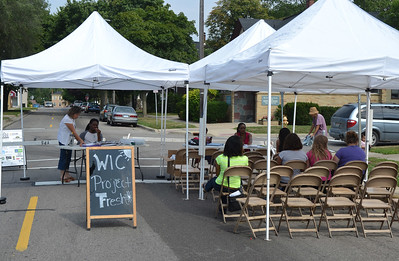WCC’s most recent press release touts the Foundations of Caring Bootcamp, a new program that provides training for “health care workers.” Michigan Works! Southeast, Vibrant Senior Living, Homewatch CareGivers and Interim Healthcare will place people in jobs following completion of the four-week program. The starting wage is $12 per hour, which is not a living wage.
According to the release, Breanne K. Stuart, President and CEO of Homewatch CareGivers of Ann Arbor/Huron said, “By working with WCC and Michigan Works!, our goal is to create a pipeline of qualified employees to help fill the overwhelming need for care.”
I have no doubt that there is an overwhelming need for both in-home health care and institutional care. I’ve said this in the past, and it bears repeating: the community college should endeavor to provide training for workers in fields where they can earn a living wage.
The economic impact of $12/hour
At $12 per hour, the worker can expect to bring home $763 bi-weekly after taxes. That’s a net salary of $19,838 per year. Following general budgeting guidelines, that starting salary would allow the following:
| Expense | Amount |
|---|---|
| Housing and utilities | $496 |
| Transportation | $248 |
| Credit cards and loans | $198 |
| Food | $165 |
| Savings/Investment | $165 |
| Student loan repayments | $132 |
| Clothing | $83 |
| Medical and dental | $83 |
| Miscellaneous | $83 |
Housing and Utilities: This includes monthly rent, electricity, gas and phone. I haven’t rented in a long time, but the last time I did (1993), my rent for a one-bedroom apartment was $485/month – not including utilities. The highest gas bill I remember in that apartment was $20. The electric bill was about $35. In today’s dollars, the combined rent and utilities on that apartment would be $1,005. A phone could add another $50.
Transportation: This category includes a car loan, insurance, gas and maintenance. As of today, gas is $3.14/gallon. If you need 30 gallons of gas per month, at this price, you’ll have $154 left in the budget to pay for your car loan, insurance and maintenance.
Food: This category includes groceries and dining out. At $165 per month, that’s $38 per week.
I could go on, but you get the point. This position nets $382 per week. Michigan’s maximum unemployment benefit is $362. (To be fair, unemployment benefits are taxable, so you would net less on unemployment, but not much.) The maximum weekly SNAP benefit for one person is $54. At this salary, a person would not qualify for SNAP benefits in Michigan, which is too bad, because SNAP would put more food on their table.
WCC programs should not create ALICE households
WCC should not be participating in “job training” programs that cannot produce jobs with a living wage. (It’s bad for the brand, ladies.) These facilities need a “pipeline of qualified employees” to accommodate the hellacious $12-per-hour turnover.
Don’t get me wrong. Providing care to people in need is heroic, but the people providing that care should receive a living wage. These employers can train their own hires for low-wage jobs. If they cannot find qualified workers, they might need to adjust their wage structure. The community college, the State of Michigan and local employers should not cooperatively create more ALICE households.
Photo Credit: Michigan Municipal League , via Flickr

























